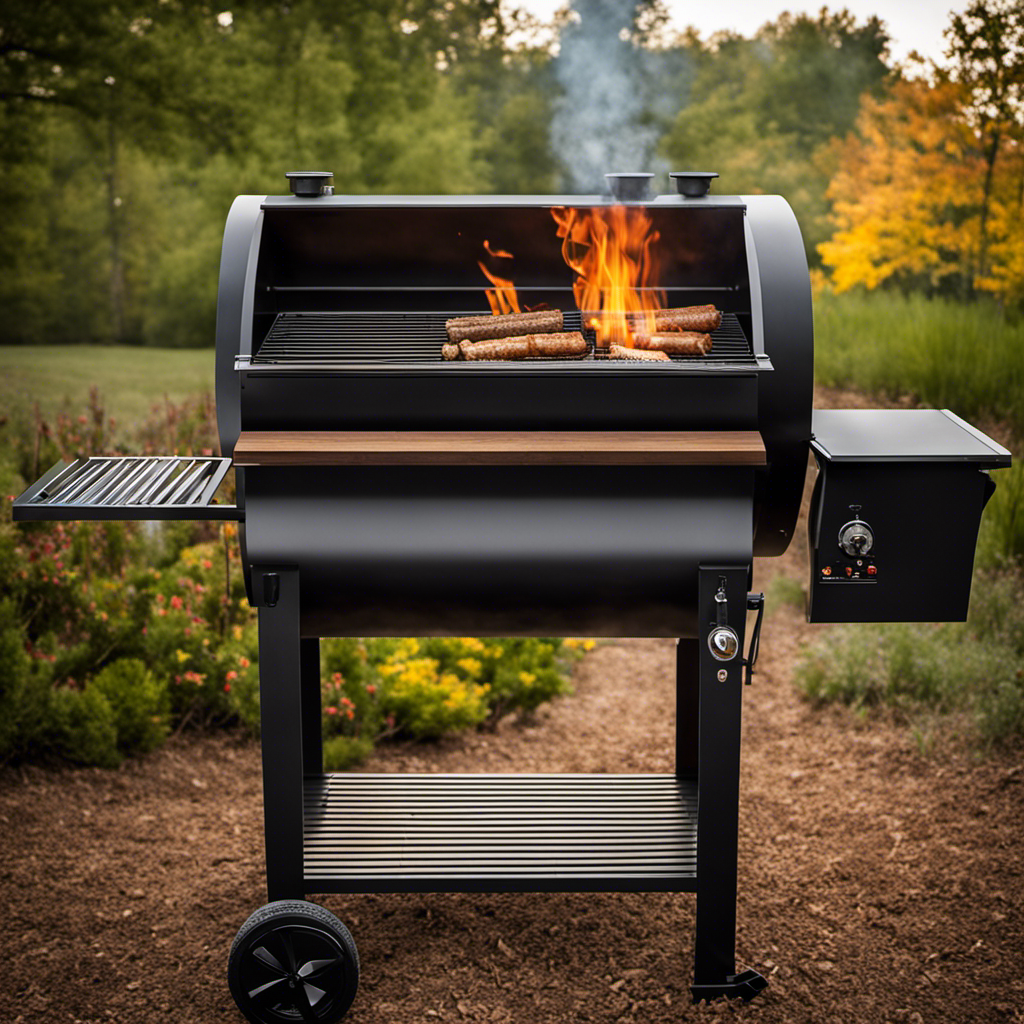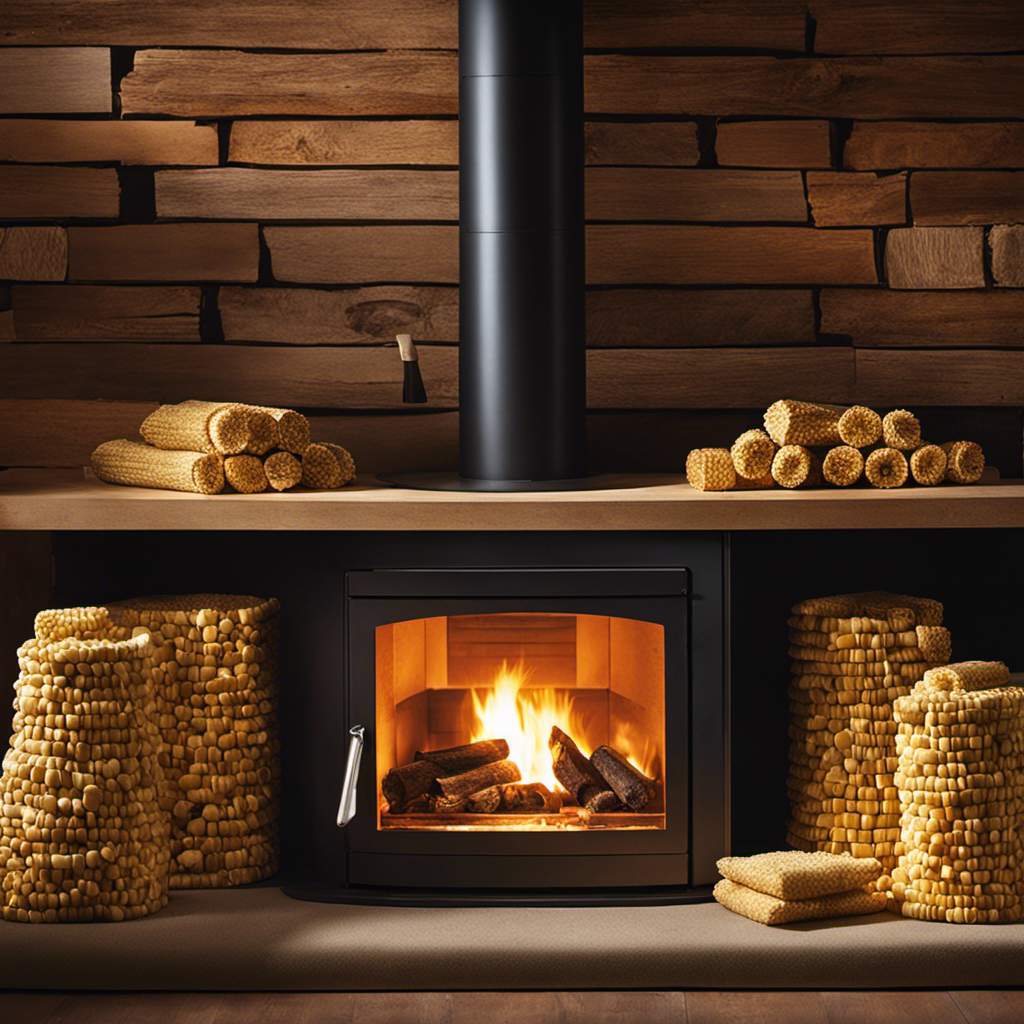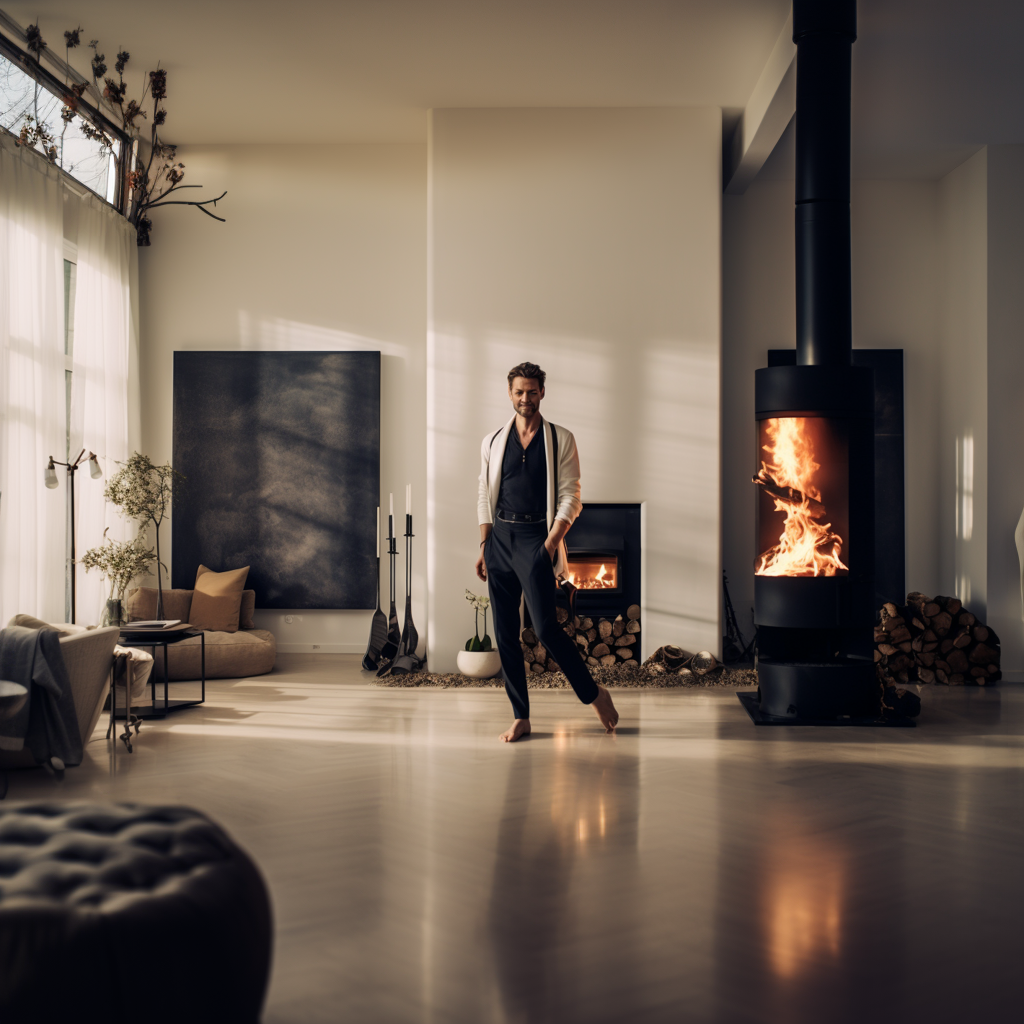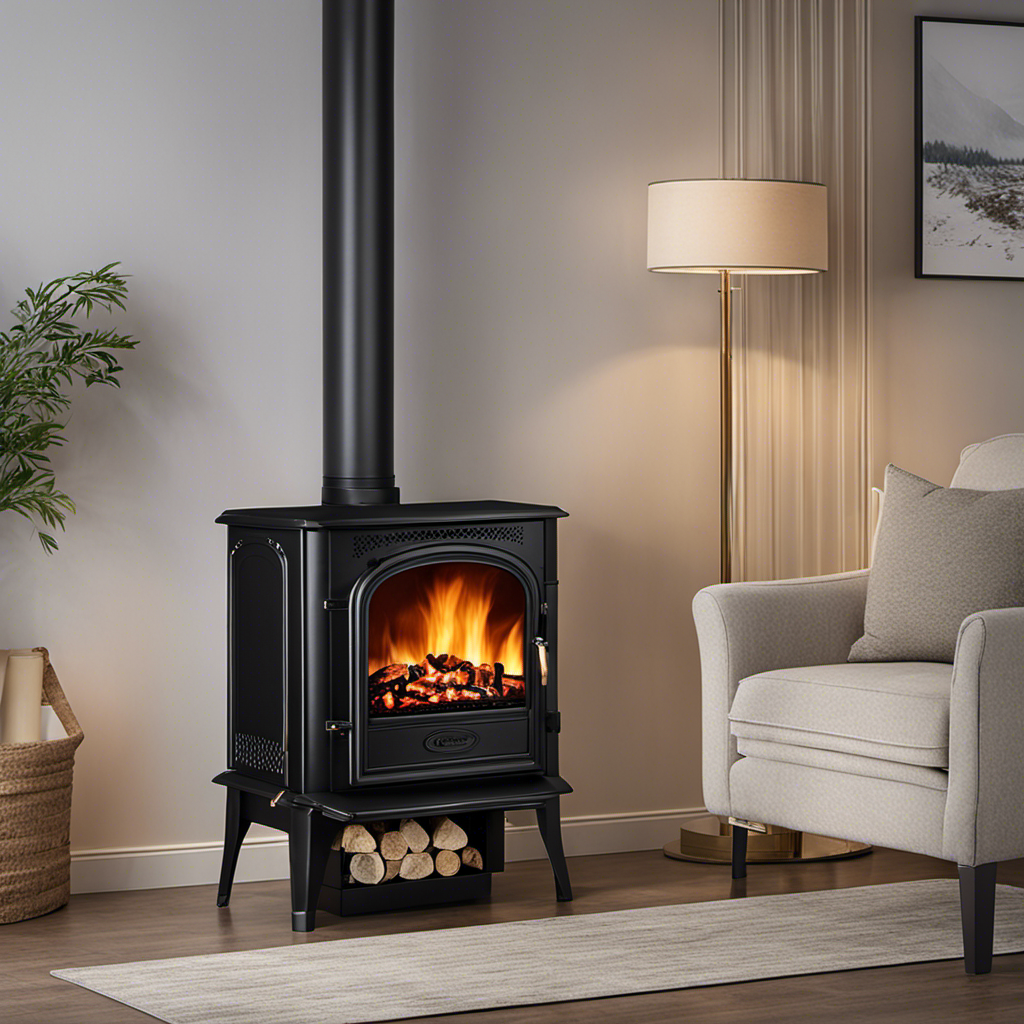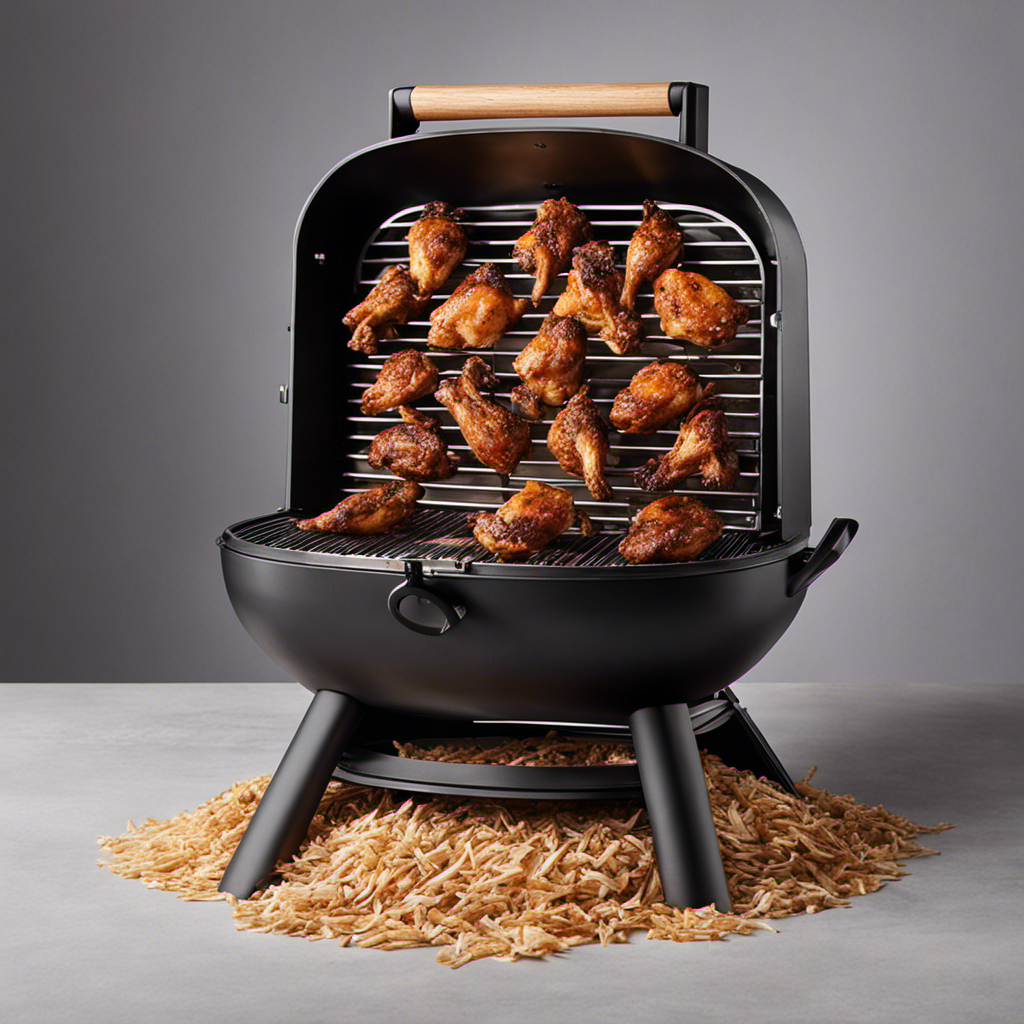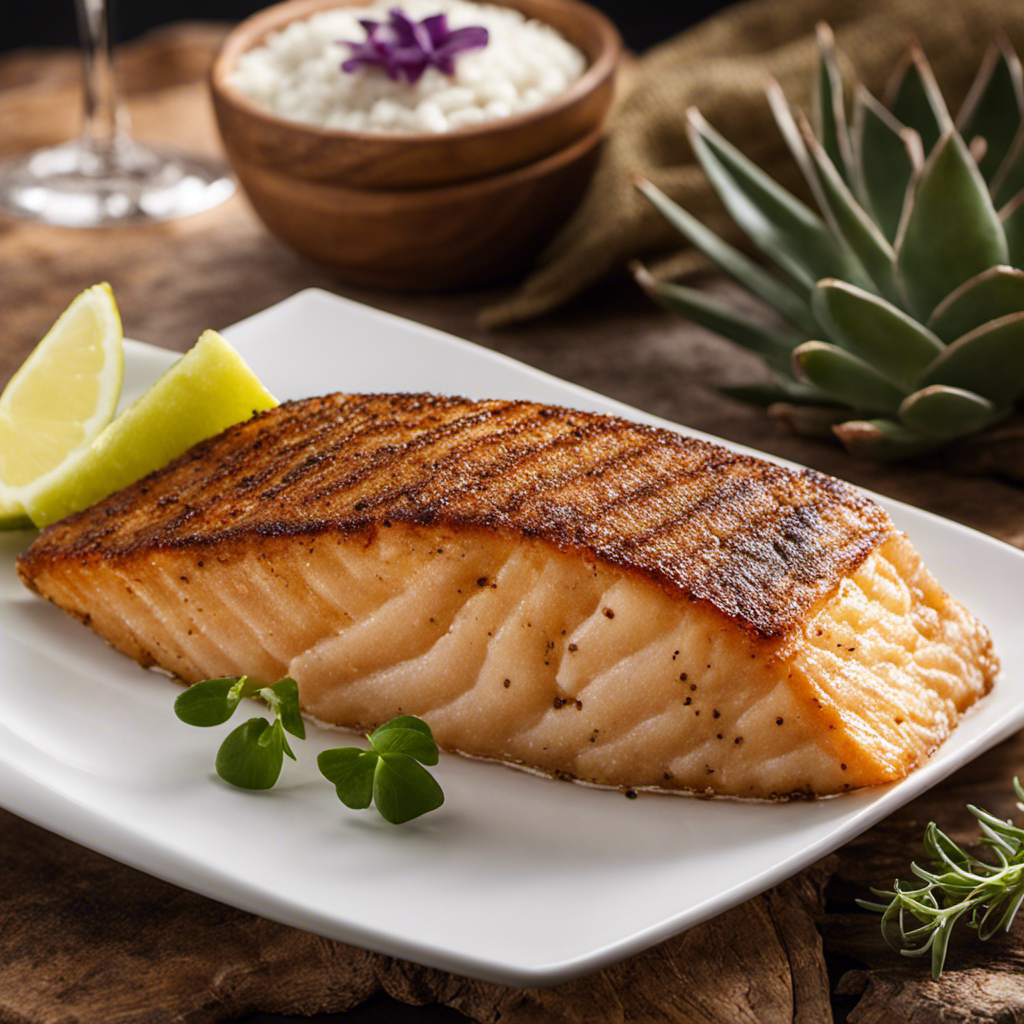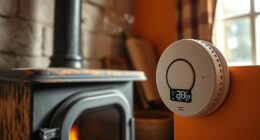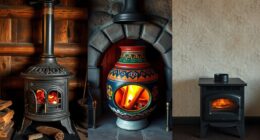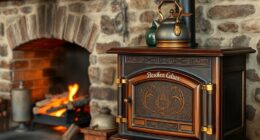As a person who loves to grill and has a wealth of experience under my belt, there have been many times when the flames in my wood pellet grill have unexpectedly dwindled. It’s really disheartening when the fire extinguishes, resulting in partially cooked food and spoiling the anticipation of an enjoyable backyard barbecue.
But fear not, for I have gathered valuable insights on what causes these flame outs. From insufficient airflow to clogged burn pots, improper pellet quality to low fuel supply, this article will guide you through the common culprits and equip you with practical solutions to keep the flames burning strong on your wood pellet grill.
Key Takeaways
- Insufficient airflow can cause flame out on a wood pellet grill.
- Improper pellet quality, including high moisture content and poor composition, can contribute to flame out.
- Low fuel supply or insufficient pellet fuel can also lead to flame out.
- Maintenance issues, such as a clogged fuel auger or a damaged ignition system, can cause flame out on a wood pellet grill.
Insufficient Airflow
If you notice that your wood pellet grill is experiencing flame out, one possible cause could be that you’re not getting enough airflow. Airflow restrictions can lead to combustion problems, causing the flame to go out unexpectedly.
It is important to ensure that there are no obstructions or blockages that could impede the flow of air into the grill. Check the air vents, chimney, and any other openings to make sure they are clear of debris. Additionally, make sure that the temperature control settings are properly adjusted to allow for optimal airflow.
By addressing any airflow restrictions, you can help prevent flame outs and ensure a consistent and efficient grilling experience.
Moving on to the next issue, a clogged burn pot can also contribute to flame out.
Clogged Burn Pot
To prevent a clogged burn pot, make sure you regularly clean out any ash or debris from your grill. Here are some grill maintenance tips and troubleshooting techniques to keep your burn pot clean and prevent flame out:
-
Clean the burn pot after each use: Remove any leftover pellets and scrape off any ash or residue that may have accumulated.
-
Use a vacuum or brush: Use a vacuum or a brush specifically designed for grill cleaning to thoroughly clean the burn pot and remove any stubborn debris.
-
Check the air vents: Make sure the air vents are clear and not blocked by any obstructions, as this can affect the airflow and lead to a clogged burn pot.
-
Inspect the auger system: Regularly inspect the auger system to ensure it is functioning properly and delivering pellets to the burn pot consistently.
Improper Pellet Quality
When it comes to improper pellet quality, there are several key points to consider.
First, moisture content greatly affects the performance of wood pellets. It is important to ensure that the pellets have a moisture content within the recommended range to avoid issues such as poor combustion and excessive ash production.
Additionally, pellet composition matters as different types of wood and additives can impact the burn efficiency and flavor of the food.
Lastly, storage conditions also play a crucial role in maintaining pellet quality. Properly storing the pellets in a dry and cool environment can prevent moisture absorption and deterioration, ensuring optimal performance when it’s time to fire up the grill.
Moisture Content Affects
Keep in mind that the moisture content of your wood pellets directly impacts the occurrence of flame out on your grill. Here are a few things to consider:
-
Effect of moisture on pellet combustion: When wood pellets have high moisture content, they tend to burn less efficiently. The excess moisture prevents complete combustion, leading to decreased heat output and potential flame out.
-
Impact of high humidity on grill performance: In areas with high humidity, wood pellets can absorb moisture from the air. This can result in higher moisture content, making it harder for the pellets to ignite and maintain a steady flame.
-
Proper storage: To prevent moisture absorption, it’s crucial to store your wood pellets in a dry and protected area. Consider using airtight containers or storing them indoors to maintain their quality.
-
Preheating the grill: Before cooking, allow your grill to preheat for a few minutes. This helps to dry out any excess moisture in the pellets and ensures a consistent flame.
Considering the impact of moisture on pellet combustion and the importance of proper storage, it’s clear that pellet composition matters in maintaining optimal grill performance.
Pellet Composition Matters
Considering the impact of moisture on combustion and the importance of proper storage, you’ll want to ensure that your pellet composition is optimal for maintaining a steady flame on your grill. Wood pellet sourcing plays a crucial role in achieving this.
When sourcing your pellets, it’s important to choose ones that have a low moisture content. Moisture can hinder combustion by reducing the efficiency of the burn and causing flame out. Additionally, the quality of the wood used in the pellets can affect their combustion characteristics. Hardwoods like oak and hickory tend to burn hotter and longer, while softwoods like pine may produce less heat and burn more quickly.
By selecting the right wood pellet composition, you can ensure a consistent and efficient flame on your grill.
Now, let’s explore how storage conditions impact pellet combustion.
Storage Conditions Impact
Storing your pellets properly is crucial for maintaining optimal combustion efficiency. The impact of temperature and the effects of humidity can greatly affect the quality of your wood pellets. When exposed to high temperatures, the pellets can expand and break down, resulting in a decrease in their overall performance. On the other hand, low temperatures can cause moisture to seep into the pellets, making them difficult to ignite and reducing their heat output.
Humidity can also be detrimental, as it can lead to the pellets absorbing moisture from the air, resulting in clumping and difficulty in feeding into the grill. To ensure the best results, store your pellets in a cool, dry place, away from direct sunlight and moisture. This will help maintain their integrity and prevent any issues with combustion efficiency.
Speaking of fuel supply…
Low Fuel Supply
Sometimes, when using a wood pellet grill, you may encounter issues with the fuel supply.
There are a few key points to consider when troubleshooting this problem.
First, insufficient pellet fuel can cause the grill to have trouble maintaining or reaching the desired temperature.
Second, a clogged fuel auger can prevent the pellets from properly feeding into the firepot, resulting in a decrease in heat output.
Lastly, an airflow blockage, such as a dirty or blocked air intake vent, can restrict the oxygen supply and hinder the combustion process.
Insufficient Pellet Fuel
If you don’t add enough pellet fuel to your wood pellet grill, it can lead to flame out. It’s important to ensure that you have an adequate supply of pellet fuel to keep your grill running smoothly.
Proper pellet fuel storage is essential to maintain its quality and prevent moisture absorption. Moisture content in the fuel can affect its combustion, leading to flame out and inefficient grilling. To avoid this, store your pellet fuel in a dry and well-ventilated area, away from any moisture sources.
Additionally, make sure to check the fuel moisture before using it in your grill. This can be done using a moisture meter or by inspecting the appearance of the pellets. By properly storing and monitoring the moisture content of your pellet fuel, you can prevent flame out and enjoy consistent and flavorful grilling.
Now, let’s move on to the next topic: the clogged fuel auger.
Clogged Fuel Auger
To prevent a clogged fuel auger, it is crucial to regularly clean and maintain your pellet grill. This will ensure the proper functioning of your grill and prevent issues like flame outs. One of the most common causes of a clogged fuel auger is the accumulation of ash and debris. To avoid any blockages, it is important to clean out the firepot and the auger tube regularly. You can use a grill brush and a vacuum to remove any ash or debris that may have built up.
In addition to cleaning, troubleshooting techniques such as checking for any loose or damaged components can also help prevent clogs. By taking these simple steps, you can ensure that your fuel auger remains clear, allowing for a consistent and uninterrupted flow of pellets. This will help avoid flame outs and keep your grill running smoothly.
Speaking of airflow blockage…
Airflow Blockage
Make sure you regularly check for any obstructions or blockages in the airflow of your grill to ensure proper functioning. Proper airflow is crucial for maintaining consistent heat and preventing flame out on your wood pellet grill.
Here are some key points to keep in mind for grill maintenance and ensuring proper airflow:
-
Clean the air vents: Regularly inspect and clean the air vents to prevent any buildup of debris or grease that can obstruct the airflow.
-
Check the chimney: Make sure the chimney is free from any obstructions such as bird nests or debris that can hinder the flow of air.
-
Clear the burner tubes: Remove any blockages from the burner tubes to allow proper air and gas mixture for efficient combustion.
-
Clean the firepot: The firepot can become clogged with ash, so clean it regularly to maintain proper airflow and prevent flame out.
-
Inspect the fan: Ensure that the fan is working properly, as it plays a crucial role in circulating air throughout the grill.
By regularly checking and maintaining the airflow of your grill, you can prevent flame out and ensure optimal performance.
Now, let’s move on to addressing another potential issue: ignition system malfunction.
Ignition System Malfunction
The most common cause of flame out on a wood pellet grill is a malfunction in the ignition system. When the ignition system fails to ignite the pellets properly, it can result in a weak flame or no flame at all.
To troubleshoot this issue, there are a few tips you can follow. First, check the electrical connections to ensure they are secure. Make sure the igniter rod is clean and free from any debris. If the igniter rod is damaged or worn out, it may need to be replaced. Additionally, check the fuse and ensure it is not blown.
By addressing these common causes of ignition system malfunction, you can get your wood pellet grill back up and running in no time.
Now, let’s move on to the next potential issue – a damaged or worn-out fire pot.
Damaged or Worn-Out Fire Pot
If you notice that your wood pellet grill is not functioning properly and the flame keeps going out, it could be due to a cracked or clogged fire pot.
A cracked fire pot can lead to air leaks, which can disrupt the combustion process and cause the flame to go out.
On the other hand, a clogged fire pot can obstruct the flow of pellets, preventing them from igniting properly and maintaining a consistent flame.
Cracked Fire Pot
One common cause of flame out on wood pellet grills is a cracked fire pot. The fire pot is a crucial component of the grill that holds the burning pellets and provides the necessary heat for cooking. Over time, the intense heat and constant use can cause the fire pot to develop cracks, leading to inefficient combustion and flame out.
To prevent this issue, regular fire pot maintenance is essential. Cleaning the fire pot regularly and inspecting it for any signs of damage can help identify and address potential cracks early on. However, if the fire pot is severely cracked or damaged, it may need to be replaced.
Ensuring proper fire pot maintenance and timely replacement will help maintain optimal performance and prevent flame out on your wood pellet grill.
Now, let’s move on to the next common issue that can cause flame out: a clogged fire pot.
Clogged Fire Pot
Regular maintenance and inspections are crucial for identifying and addressing potential clogs in the fire pot of a wood pellet grill. Neglecting this important task can lead to frustrating flame-outs and ruined meals.
To ensure your grill is in top shape, follow these tips for fire pot cleaning and maintenance:
- Regularly clean out the fire pot to remove any ash or debris that may be blocking the airflow.
- Check the burn pot liner for signs of wear or damage, as a damaged liner can lead to clogs and poor performance.
- Inspect the igniter rod for any build-up or corrosion, as this can prevent the pellets from igniting properly.
By taking the time to perform these simple maintenance tasks, you can prevent clogs in the fire pot and keep your wood pellet grill running smoothly.
Now, let’s move on to another potential issue: faulty temperature sensors.
Faulty Temperature Sensors
You’ll want to check if the faulty temperature sensors are causing the flame out on your wood pellet grill. Temperature fluctuations can greatly affect the grill’s performance, leading to inconsistency in cooking and potentially ruining your meal. Faulty temperature sensors can result in inaccurate readings, causing the grill to shut down or not reach the desired temperature. To troubleshoot this issue, refer to the table below to determine if your temperature sensors are functioning properly:
| Problem | Possible Solution |
|---|---|
| Sensor not reading temperature accurately | Replace the faulty sensor |
| Sensor reading temperature but not adjusting grill accordingly | Check the wiring and connections, replace if necessary |
Wind or Extreme Weather Conditions
The wind or extreme weather conditions can significantly affect the performance of your grill. It’s important to take these factors into account and make necessary adjustments for optimal results.
Here are a few things to keep in mind:
-
Use a grill cover: Investing in a high-quality grill cover can protect your grill from the elements, including strong winds. This will help prevent any damage or debris from entering the grill and affecting its performance.
-
Position your grill strategically: Find a spot that provides some shelter from the wind, such as against a wall or fence. This will help minimize the impact of strong gusts on the flame and temperature control.
-
Clean your grill regularly: Wind can carry dirt and debris onto your grill, affecting its functionality. Regularly cleaning your grill, both inside and out, using appropriate cleaning methods will help maintain its performance and longevity.
Improper grill maintenance, neglecting cleaning and regular maintenance, can lead to a decrease in performance and potential issues.
Improper Grill Maintenance
When it comes to maintaining a wood pellet grill, proper care and cleaning are essential to ensure optimal performance and prevent flame outs. Neglecting grill maintenance can lead to clogged burn pots, uneven heat distribution, and decreased efficiency. Here are some maintenance tips to keep your grill in top shape:
| Maintenance Tips |
|---|
| 1. Clean the grill grates regularly to prevent grease buildup and maintain even heat distribution. |
| 2. Empty and clean the ash pan after each use to prevent ash buildup, which can obstruct airflow. |
| 3. Clear any debris or obstructions from the auger and hopper to ensure consistent pellet feed. |
| 4. Check and clean the exhaust vent to prevent smoke and soot buildup. |
Incorrect Grill Settings
To prevent uneven cooking and potential food safety risks, it’s important to ensure that your grill is set to the correct temperature and cooking settings. Here are three key factors to consider when setting up your grill:
-
Grill Temperature: Different types of food require different temperature settings. Make sure to adjust the grill to the recommended temperature for the specific dish you are cooking. This will ensure that your food is cooked thoroughly and evenly.
-
Cooking Time: Along with the grill temperature, it is crucial to determine the appropriate cooking time for your food. Overcooking can result in dry and tasteless dishes, while undercooking poses a risk of foodborne illnesses. Follow the recommended cooking times for each type of food to achieve the perfect results.
-
External Factors: Keep in mind that external factors such as weather conditions, altitude, and wind can affect the grill temperature and cooking time. Adjustments may be necessary to compensate for these variables and ensure optimal cooking outcomes.
By understanding and implementing these key considerations, you can achieve delicious and safe grilled dishes.
Now, let’s move on to address potential electrical issues that may arise when using a wood pellet grill.
Electrical Issues
Make sure you’re aware of potential electrical issues that can occur while using your grill. Electrical safety is crucial when it comes to operating any appliance, including grills. To ensure a safe grilling experience, it’s important to be knowledgeable about common electrical problems that may arise and the troubleshooting techniques to address them.
One common electrical issue is a tripped circuit breaker. If your grill suddenly loses power, check your circuit breaker panel to see if any breakers have been tripped. Resetting the breaker should restore power to your grill.
Another potential problem is a faulty power cord. Inspect your grill’s power cord for any signs of damage, such as frayed wires or exposed insulation. If you find any issues, replace the power cord immediately to prevent electrical hazards.
Additionally, it’s essential to keep your grill away from water sources to avoid electrical shocks or short circuits. Always use a dry and stable location to set up your grill.
Frequently Asked Questions
Can a Flame Out on a Wood Pellet Grill Be Caused by a Faulty Temperature Sensor?
Yes, a flame out on a wood pellet grill can be caused by a faulty temperature sensor. When the sensor malfunctions, it can lead to inaccurate temperature readings, resulting in the flame going out. Troubleshooting the temperature sensor is crucial to prevent this issue.
How Can Wind or Extreme Weather Conditions Affect the Flame Out on a Wood Pellet Grill?
Wind and extreme weather conditions can negatively impact the flame out on a wood pellet grill. These factors can disrupt the airflow, affecting the combustion process and causing the flame to extinguish.
What Are Some Common Signs of an Ignition System Malfunction on a Wood Pellet Grill?
When it comes to troubleshooting the ignition system on a wood pellet grill, it’s important to be aware of common signs of malfunction. This includes issues with temperature sensors and other related components.
Are There Any Electrical Issues That Could Cause a Flame Out on a Wood Pellet Grill?
There could be various electrical issues that might result in a flame out on a wood pellet grill. Problems with the electrical wiring or the power supply can disrupt the proper functioning of the grill.
How Often Should a Wood Pellet Grill Be Maintained to Prevent Flame Outs?
Regular maintenance is crucial for preventing flame outs on wood pellet grills. It’s recommended to clean the grill after every use and deep clean it every few months to ensure optimal performance and safety.
What Are the Common Causes of Flame Out on Wood Pellet Stoves?
Flame out on St.Croix wood pellet stoves can be caused by various factors, including insufficient air flow, low pellet fuel supply, or a dirty burn pot. Proper maintenance and regular cleaning can help prevent these issues, ensuring your stove operates efficiently and safely.
Conclusion
In conclusion, flame outs on wood pellet grills can be caused by a variety of factors.
Insufficient airflow, clogged burn pots, and improper pellet quality can all contribute to this frustrating issue.
Low fuel supply and ignition system malfunctions can also be to blame.
Additionally, wind or extreme weather conditions, improper grill maintenance, and incorrect grill settings can all lead to flame outs.
It’s important to address these issues to ensure a smooth grilling experience.
Remember, a well-maintained grill is a happy grill!
Logan’s affair with adventure began in childhood. He hailed from a small town where vast forests bordered one side and endless shores stretched on the other. His days were spent exploring uncharted woods, climbing tall trees, or listening to the tales of old sailors. This early immersion in a world brimming with stories and mysteries became the foundation of his passion for writing.

